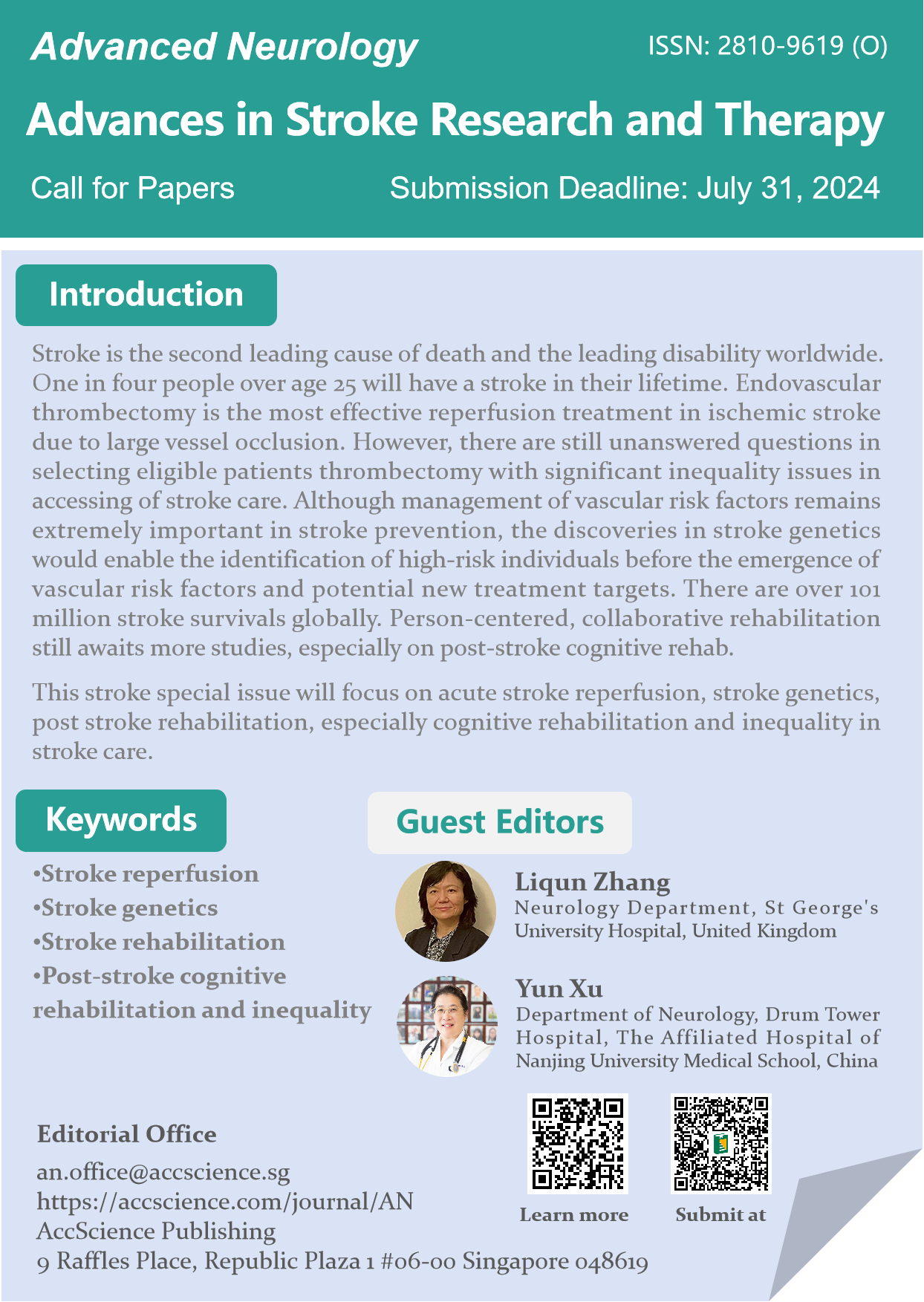
Stroke is the second leading cause of death and the leading disability worldwide. One in four people over age 25 will have a stroke in their lifetime. Endovascular thrombectomy is the most effective reperfusion treatment in ischemic stroke due to large vessel occlusion. However, there are still unanswered questions in selecting eligible patients thrombectomy with significant inequality issues in accessing of stroke care. Although management of vascular risk factors remains extremely important in stroke prevention, the discoveries in stroke genetics would enable the identification of high-risk individuals before the emergence of vascular risk factors and potential new treatment targets. There are over 101 million stroke survivals globally. Person-centered, collaborative rehabilitation still awaits more studies, especially on post-stroke cognitive rehab.
This stroke special issue will focus on acute stroke reperfusion, stroke genetics, post stroke rehabilitation, especially cognitive rehabilitation and inequality in stroke care.
Subclinical atrial fibrillation in embolic stroke of undetermined source: Management and stroke recurrence
Stroke care in sub-Saharan Africa: Evaluating the present landscape and proposing strategies for improving outcomes
Inflammation in ischemic stroke patients with type 2 diabetes – Part I: Atherosclerosis formation, acute ischemia, post-stroke infection, and long-term sequelae
Inflammation in ischemic stroke patients with type 2 diabetes – Part II: Potential therapeutic targets
Proteomic analysis of exosomes derived from detrimental and protective microglia
Trimethylamine N-oxide: A new target for the prevention and treatment of ischemic stroke
Rescue stenting in refractory mechanical thrombectomy: A review
Thirty years of the South London Stroke Register

